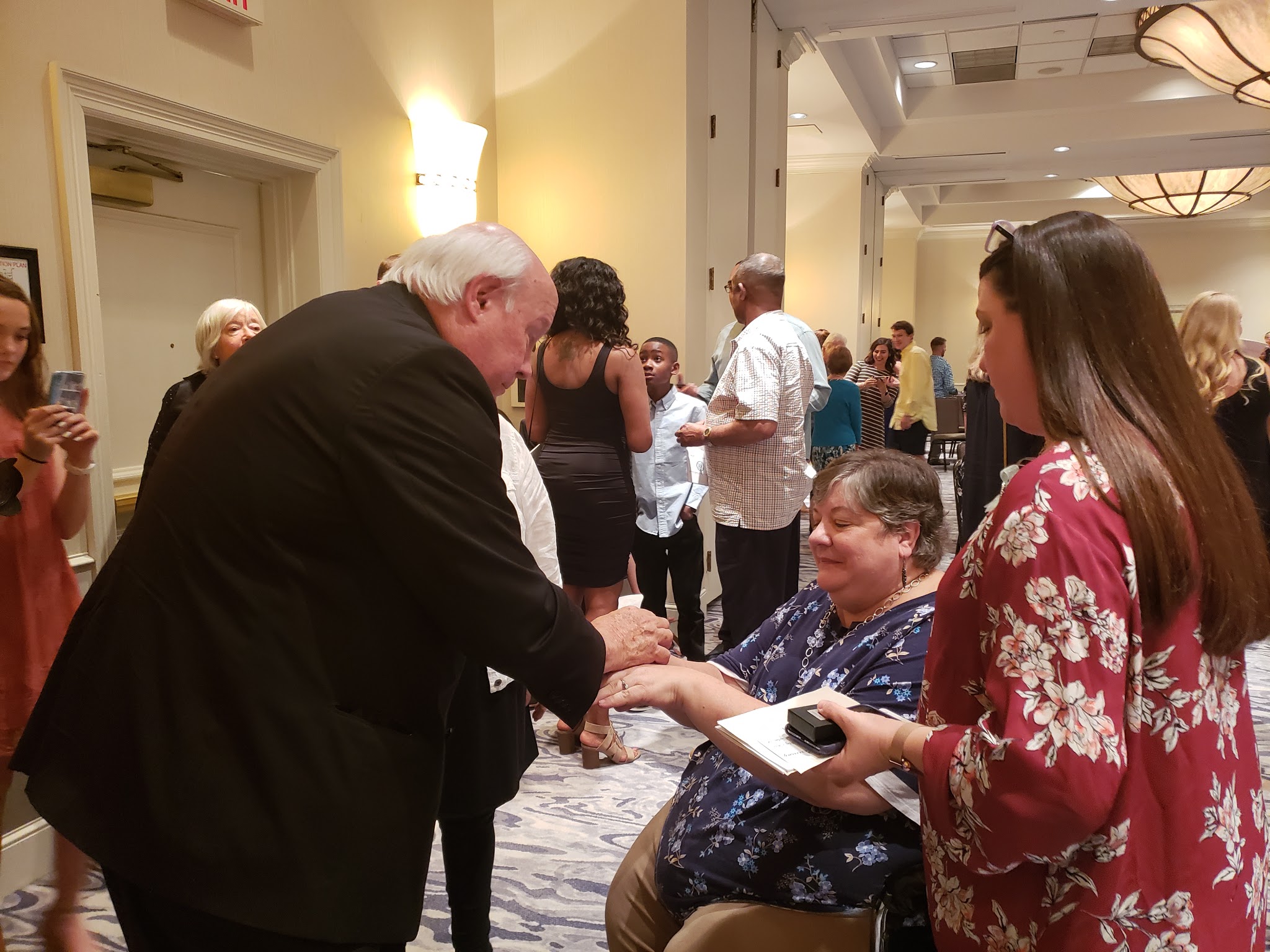Generations!
My theme text for ministry is Psalm 78:1-8, particularly verses 5 & 6 which talk about passing the message down through generations.
Some see this as a simple passing on of the data of faith, but the passage is talking about relating the experience of the community with God from generation to generation. In other words, the teaching here would be less focused on “here is what I believe” and more on “here is what has happened in my life.” Yes, the focus is on that life with God, but it is still on the action rather than the framework.
It’s the “generation” idea that I have in mind here. On Thursday night (May 2, 2019) I had the privilege of watching my wife, retired RN, pin my daughter, graduating nurse. “Pinning” is a tradition amongst nurses, and that pinning ceremony is to them much more the moment of becoming a nurse than is the more academic commencement. I commented to Jody after the commencement that while Friday morning was my world, Thursday night had been hers.
Watching mother pin her daughter brought to my mind generations. I sensed the presence of my mother, who died last year just short of her 100th birthday. She too was an RN. And then I thought about another generation.
Martha Giles Blabey was my grandmother, and for some time at the end of the 19th century and beginning of the 20th, she was district nurse. She wasn’t educated as a nurse, but she had the skills, and was officially named to the post. I don’t know if there were any actual RNs around that area (Daughin, Manitoba, Canada) at the time. Certainly there can’t have been many.
That makes my daughter, Janet Lister, the fourth generation.
It’s not just four generations of a job, a profession, or even an avocation. It’s four generations of service. Four generations of people who have carried their faith, their experience of God, their integrity, their skills, and all the benefits of an education in their art and the science that lies behind it to those who need their help.
It’s a legacy.
There are those who might have a couple of objections.
The first is that my mother, a Seventh-day Adventist, believed in soul sleep. Her Adventist colleagues might be wondering how I might think of “feeling her presence” at an event.
I have come to see the soul sleep vs immortality argument as a distinction without a difference. You go from the finite from the infinite, from time to eternity, and what does the “when” of your death mean on the other side? In eternity, I suspect, our time distinctions won’t matter.
Others might comment on the presence of someone who has gone on to glory here. Protestants don’t like the idea of the “saints” praying with or for us. Why can’t we just pray to God ourselves?
Indeed we can. But I got an explanation from a member of the Episcopal church that has stuck with me. He asked me whether we wouldn’t ask other members of our church to pray for us and to pray with us. If so, why limit it? Why not all the church in all times?
While I continue to object (I think justly) to the making of “saints” or particular people—all God’s people are saints—I don’t object to inviting the body of Christ throughout time to join in prayer.
Second, one might note that Janet is my stepdaughter, and thus not genetically related to my mother or grandmother. I find that objection annoying. I regard generations as both spiritual and physical. I do understand DNA, but that’s not all that’s involved.
I think a few people might be confused listening to an extended conversation in which both Janet and I are involved. She calls me dad, and references me as “my dad” in the conversation. She can suddenly, however, reference “my dad” in reference to her birth dad who passed away.
I like this. I see my daughter as a gift passed on to me. I see other people as spiritual children and spiritual parents. None of this detracts from Janet’s birth dad. None of my own spiritual parents detract from my real parents.
DNA says a great deal scientifically, but there is a spiritual, intellectual, and emotional process that also forms us and through which we form others. There are things we can pass on to others that are much more important than our genes.
A couple of years ago I heard about a church that did multi-generational confirmation classes. Their goal was to include people from three physical generations and three spiritual generations in each group. This might be a child, parent, and grandparent and the person who first invited one to church, or who taught one confirmation, and the person who taught that person.
I like that idea.
There’s also the legacy here of each class of a profession, in this case nursing, passing on to the next generation of practitioners a standard of care, practice, and integrity. This is the generational glue that makes a profession more than just a way in which one makes money.
In this the faculty and staff of Carolinas College of Health Sciences, those nurses who have cared for and advised each new nurse, all become part of this generational connection.
It’s something we need to celebrate, nurture, and preserve in all our activities, whether we designate them as secular or spiritual.
